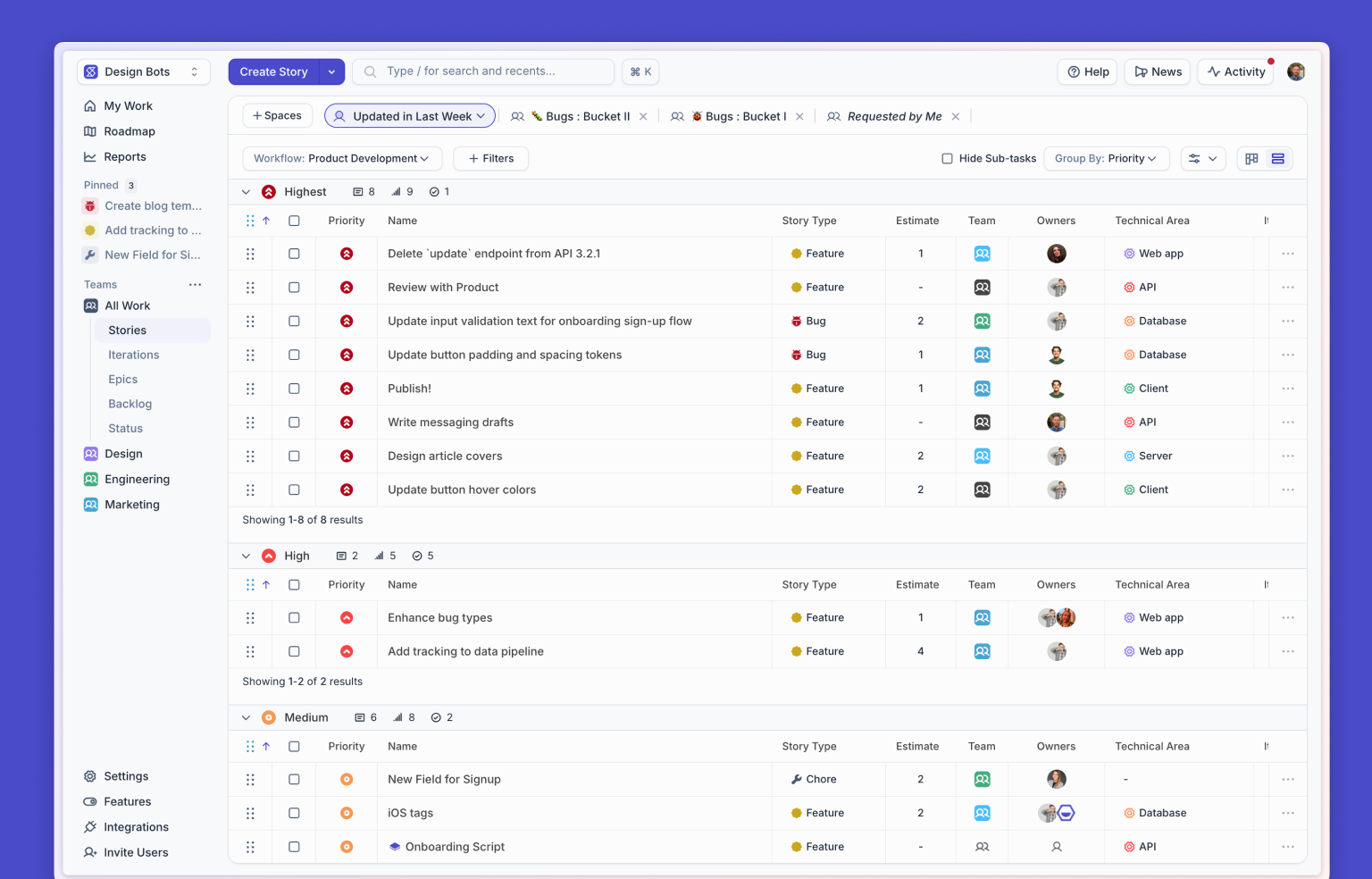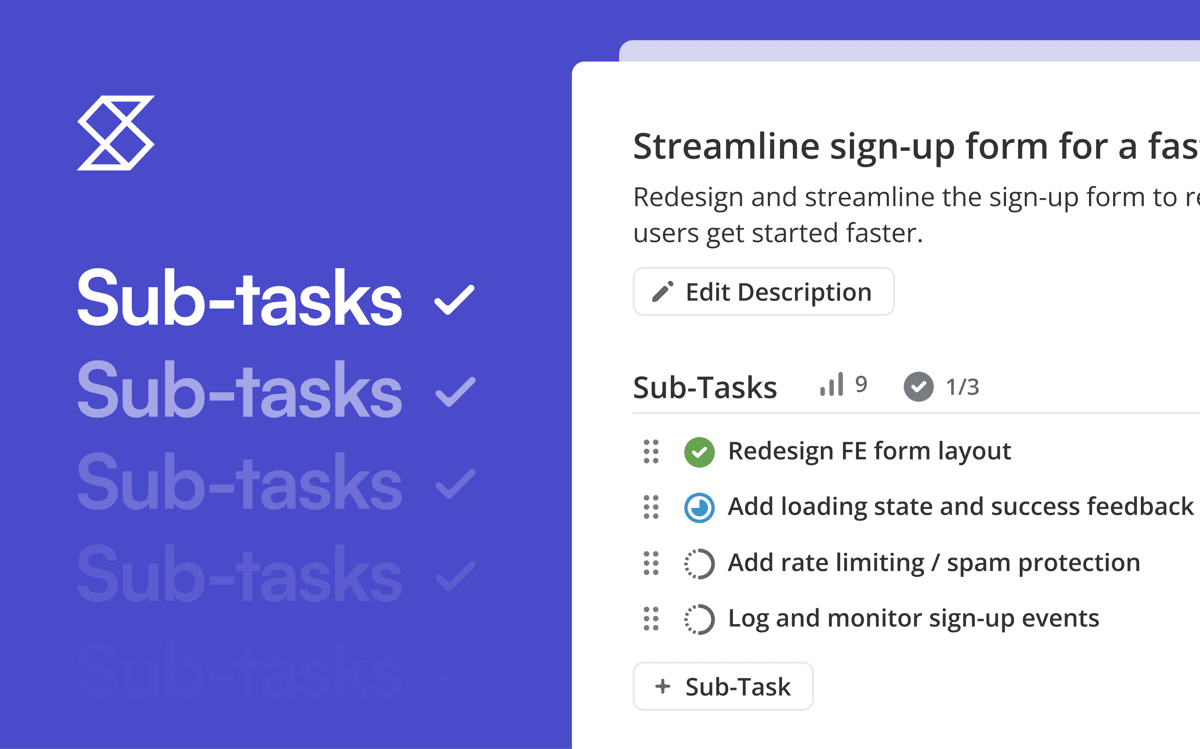A few developers working hard can get a lot done, but it takes a well-rounded team with different skills and roles to build and grow a successful software product and company.
Unfortunately, all too often, we find that our teams or team members are working in silos, not fully understanding what others are doing (or why). With this series, we’ll be digging into the various members of your team to help you understand and work better with them all.
First up in the series: project managers. The project manager’s job, at the simplest level, is to make sure that work gets done on time, while staying at or under budget (budget here referring to all resources, including employee hours).
Project managers’ work involves:
- coordinating different teams/employees to make sure they’re working well together,
- syncing up with any outside consultants or stakeholders, and
- changing the course of the project as needed if resources or objectives change.
So what do they need from you in order to get all of this done?
Project managers want you to keep them in the loop
Project managers are laser-focused on making sure the right work gets done at the right time and in the right way.
Even though everyone knows that, it can be easy to accidentally keep your PM out of the loop — or not update them when you know something will be late, because you don’t have a new completion estimate or because you just don’t want to deal with the backlash.
But your project manager wants to know_._
Elizabeth Harrin, blogger and director at Otobos Consultants Ltd, says she needs people to deliver on their promises — if you say it’ll be done by Friday, it needs to be done by Friday. And if that’s not possible, she adds “at least have the courtesy to give me notice that it won’t be done, so I can juggle other tasks to deal with it, or get you the support that you need to commit the necessary time to this project.”
We all know that things come up sometimes, but if you can’t meet your deadlines, your project manager needs as much notice as possible, so that they can rearrange other tasks accordingly, or get you the support you need to get the task done on time. Delaying notice until the last minute doesn’t help your PM, you, or the project.
Project managers want to know what you’re working on — even if it’s not their project
According to Johanna Rothman, author of several books on project management, “The project team often doesn’t understand why I want them to tell me if anyone asks them to work on ‘not-our-project work’.” She finds that the developers sometimes interpret her questioning as meddling or micromanaging.
However, she has to ask about these other commitments because having her developers resourced to another project inevitably slows her project down.
While the engineers may be doing their best to multitask, there’s no way to avoid the decrease in available hours or the switching costs — the time lost from multitasking.
In order to track these other projects and plan accordingly, Johanna maintains a list of:
- how many requests other teams are making for her team members
- who’s making the requests
- what it is they want her developers to do
This list enables her to look for a solution that keeps her project on track and gets the other PMs the help they need.
Project managers value good kickoffs
Susanne Madsen, author and project management consultant, notes that one of the biggest challenges project managers face is clients and executives changing the requirements or project objectives after the project has already been defined and kicked off.
According to Susanne, “changes to requirements are important when it helps the project deliver a better product or service, but it’s frustrating to witness if the changes could have been avoided.”
{{testimonial-component}}
It’s not always possible to lock down all the requirements ahead of time, but often, changes occur because the problem hasn’t been analyzed in enough detail. Everyone is impatient to get started, after all. As a result, unforeseen obstacles can come up, causing objectives and requirements to be changed halfway through the project. Then, all of that throws off the existing plan and frustrates everyone involved.
Susanne’s wish — and the wish of many project managers — is that people would realize how disruptive these changes can be, and be willing to spend more time upfront to make sure that the proposed solution will actually lead to the anticipated outcomes.
Above all, we’ve found that project managers value communication, early and often. The more they understand the lay of the land, the better they can do their jobs….and let you do yours. We’d love to hear what else you think matters to project managers - let us know on Twitter!










.png)






%20(788%20x%20492%20px)%20(1).png)
.png)

